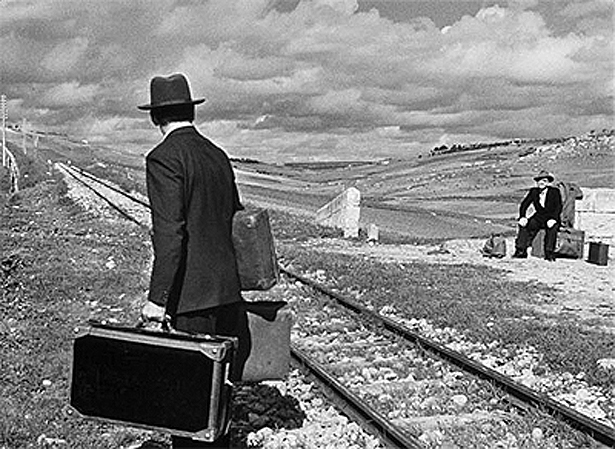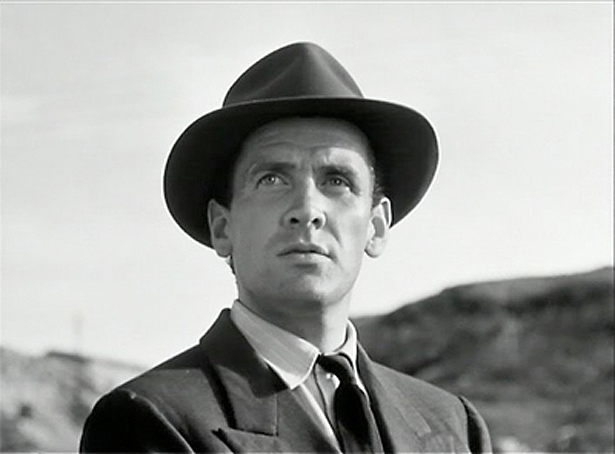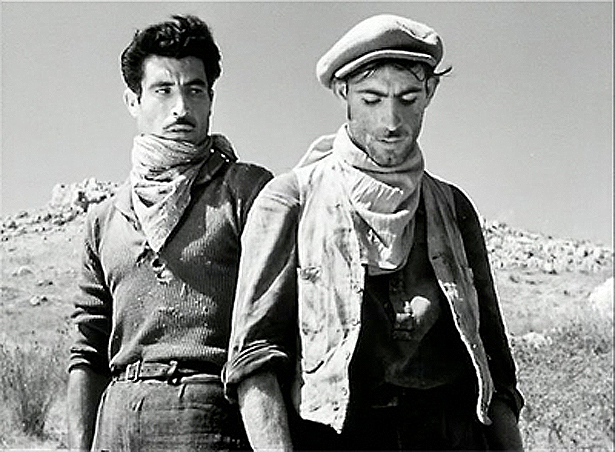 New magistrate arrives, and old one departs
New magistrate arrives, and old one departs
It usually happens when a new guy, typically from the north, but in this case from the Sicilian capital, arrives to the wild South in effort to instill some law and order and the local backlash it creates. We have already seen this formula in action in many other classic Westerns, and later modern urban detective films. It’s the alienated outsider with a mission that is in stark conflict with local norms and collective solidarity.
 Guido Schiavi (Massimo Girotti), the tireless magistrate in another face-off with the mafia
Guido Schiavi (Massimo Girotti), the tireless magistrate in another face-off with the mafia
In this respect, the film is a precursor to director Pietro Germi’s future films, a Northerner from Genoa that devoted most of his career to creating films around contemporary social issues pertaining to Sicilian heritage from an outsider inquisitive angle. This exact gap between Northern and Sicilian social norms of family, church and the law – is the creative engine that typically drives Germi’s plots forward and makes you reexamine your own truths, coupled with his signature bitter criticism – a hallmark of the commedia all’italiana genre. Best examples are Divorzio all’italiana – Divorce Italian Style (1961) and Sedotta e Abbandonata – Seduced and Abandoned (1963)

[youtube width=”615″ height=”461″]http://youtu.be/30jmJIfE_vQ[/youtube]
Tirade scene with an excellent study of local faces that carry much more that they can share
Just by judging the surnames of key players from the above four groups, Germi implicitly conveys his opinion about this wry influence structure: Passalacqua – The mafia head is engaged in criminal acts, but no one will say anything like his name – water under bridge. Lo Vasto, is the baron’s last name to indicate his large riches, whereas the magistrate and his police marshal are given very weak names to indicate their powerless status: Schiavi (slaves) and Griffo’ (snout). Interestingly, the peasants we see are typically given only first names like the young Paulino that represent the most vulnerable fabric in this society as they are both victimized and from fear keep their mouth shut.
One of the film’s strongest scenes (see above) is the long tirade the magistrate gives to a crowded village piazza where he promised all that despite being pushed around so many times, he’s not willing to give up and he will stay in the village to keep the law. The message is clear: the good forces will continue fighting the bad intertwined in an eternal battle where the poor man pays the most.

